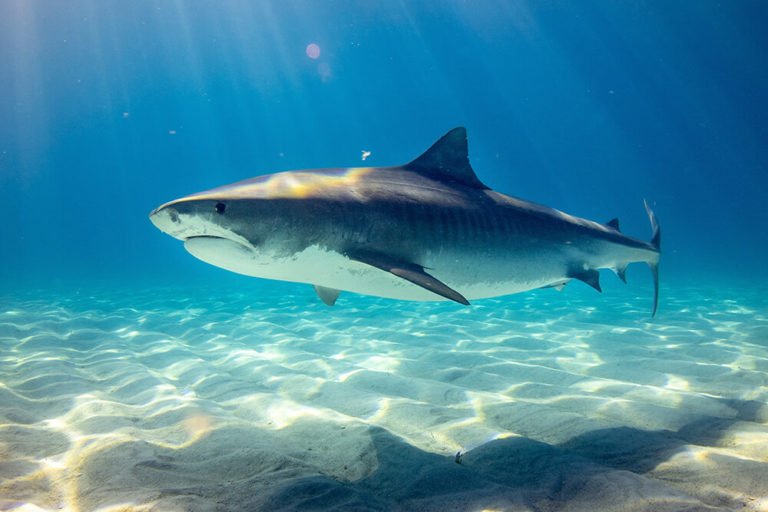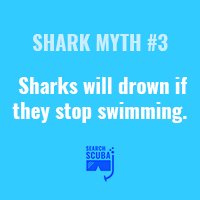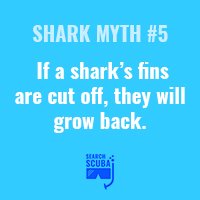Top 10 Myths About Sharks Every Diver Should Know

While many divers are delighted by marine life, there’s one species that causes apprehension in everyone—sharks. Their sharp teeth and shifty reputations can send anyone into a panic. But it’s important to know how to separate fact from fiction when it comes to swimming with these aquatic creatures.
Unfortunately, shark fears often stem from widespread myths about their habits and behaviors. Since it’s Shark Week, we thought we’d set the record straight by clearing up some common misconceptions about sharks.
1. SHARKS EAT HUMANS.
Movies and media have instilled an irrational fear in our culture that sharks hunt and eat humans. On the contrary, most shark “attacks” are a product of curiosity, not hunger. If a shark spots an unfamiliar creature in the water, they’ll give it a nibble to see if it’s food. The problem is that these bites can be fatal to humans, even if the shark takes one bite and swims away.
2. SHARKS ONLY LIVE IN SALTWATER.
As jarring as it may seem, sharks can—and do—survive in freshwater. In fact, bull sharks often swim to fresh water through river channels during birthing season.
3. SHARKS WILL DROWN IF THEY STOP SWIMMING.
This is true of some species, but not all. Sharks need water to pass over their gills in order to breathe. While some sharks can only make this happen by swimming, others can use their muscles to actively push water over their gills, allowing them to rest on the ocean floor without drowning.
4. ALL SHARKS ARE HUMAN PREDATORS.
While some species of sharks have been known to bite humans (mainly great white sharks, bull sharks and tiger sharks), many do not. The whale shark, for instance, is a gentle giant. This massive creature feeds by filtering tiny bits of food, like fish eggs, through its gills. Here’s how to stay safe if you encounter a shark on your next scuba adventure.
5. IF A SHARK’S FINS ARE CUT OFF, THEY WILL GROW BACK.
If a shark loses a fin, it’s gone for good. Unfortunately, shark fins are often harvested to be sold as souvenirs or to make soup. The gruesome act of shark finning often ends in de-finned sharks getting dropped back into the ocean to die. This is depleting shark populations and upsetting the delicate balance of the aquatic food chain. You can help by avoiding shark fin products at all costs!
6. SHARKS HAVE TINY BRAINS AND ARE UNINTELLIGENT.
While a shark’s brain is smaller than that of a human, their brain-to-body ratio is actually quite high for a fish. Sharks are advanced in terms of their complex social behaviors and keen sense of smell.
7. ALL SHARKS LOOK THE SAME.
There are 440 known shark species around the globe. From the miniscule dwarf lantern shark to the gigantic whale shark, every species of shark looks and behaves differently.
8. SHARKS KNOCK HUMANS OFF OF BOATS.
This nightmare is reserved for fictional films. While some sharks have been known to jump out of the water to attack other sea creatures, they have not been known to jump out of the water onto boats.
9. SHARKS ARE FEARED BY ALL MARINE LIFE.
While you might think sharks rule the sea, they have fierce competition when it comes to killer whales. Killer whales are apex predators and have been known to attack great white sharks in packs.
10. THE WORLD WOULD BE BETTER OFF WITHOUT SHARKS.
Reports of shark attacks can cause negative narratives about these creatures. However, sharks are integral to the health of our oceans and our planet. They prey upon weak or sick animals, which ultimately strengthens those species. They also help to disperse carbon throughout the ocean by feeding on dead matter, which protects our earth.










